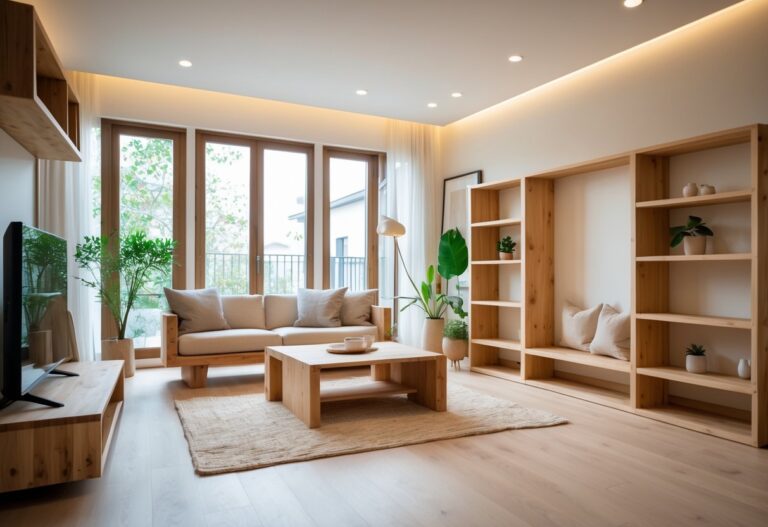
10 JAPANDI LIVING ROOM IDEAS for Modern Minimalist Comfort and Style
Japandi style combines Japanese minimalism with Scandinavian warmth to create living rooms that feel calm and inviting. It focuses on simplicity, natural materials, and neutral colors to foster a sense of peace and balance in the home. This design approach is becoming popular for those who want a serene and stylish space.
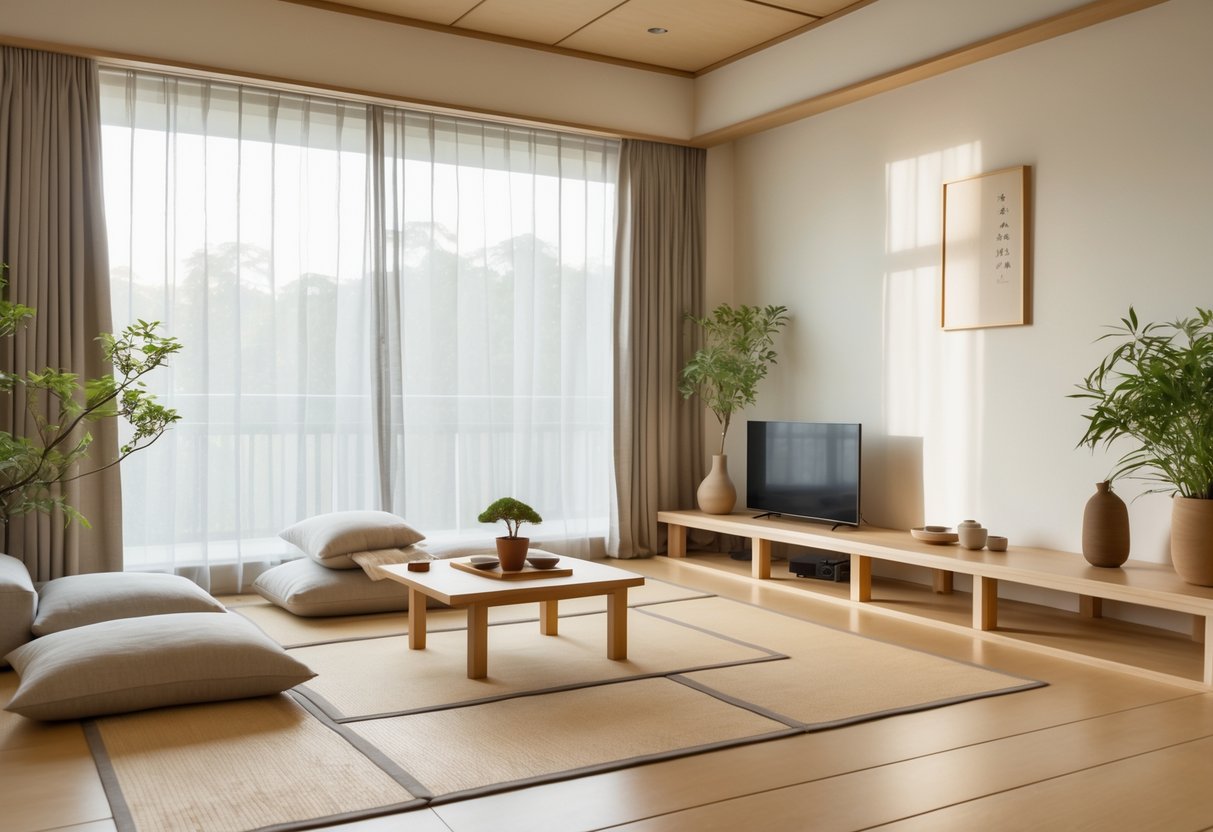
This article shares 10 Japandi living room ideas to help readers create a timeless and cozy space that blends functionality with beauty. The ideas offer inspiration for using clean lines, soft tones, and natural textures without overwhelming the room.
1) Incorporate natural wood furniture with clean lines
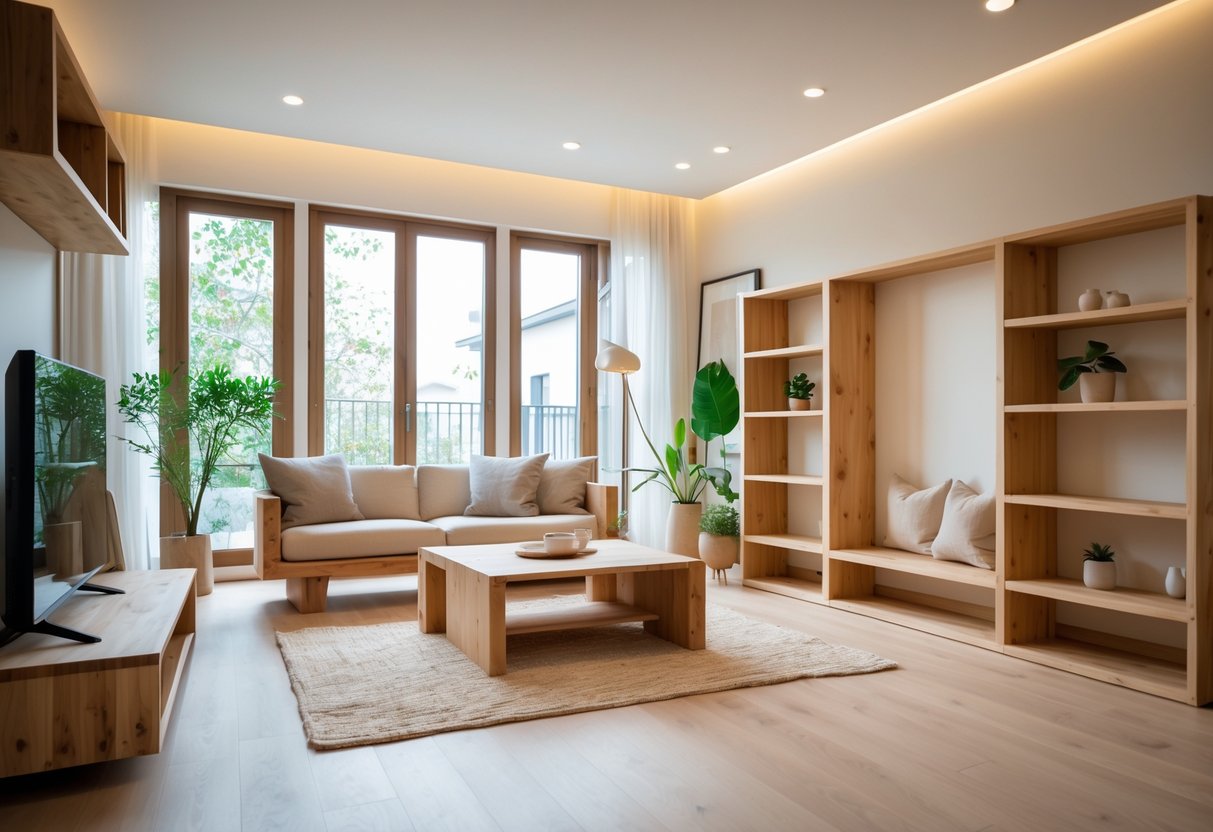
Japandi style relies on natural wood furniture with simple, clean lines. This type of furniture adds warmth and keeps the space feeling calm. Pieces like low wooden coffee tables or sleek console tables work well. The focus is on function and minimalism, avoiding extra details or clutter.
2) Use soft whites and gentle grays for wall colors
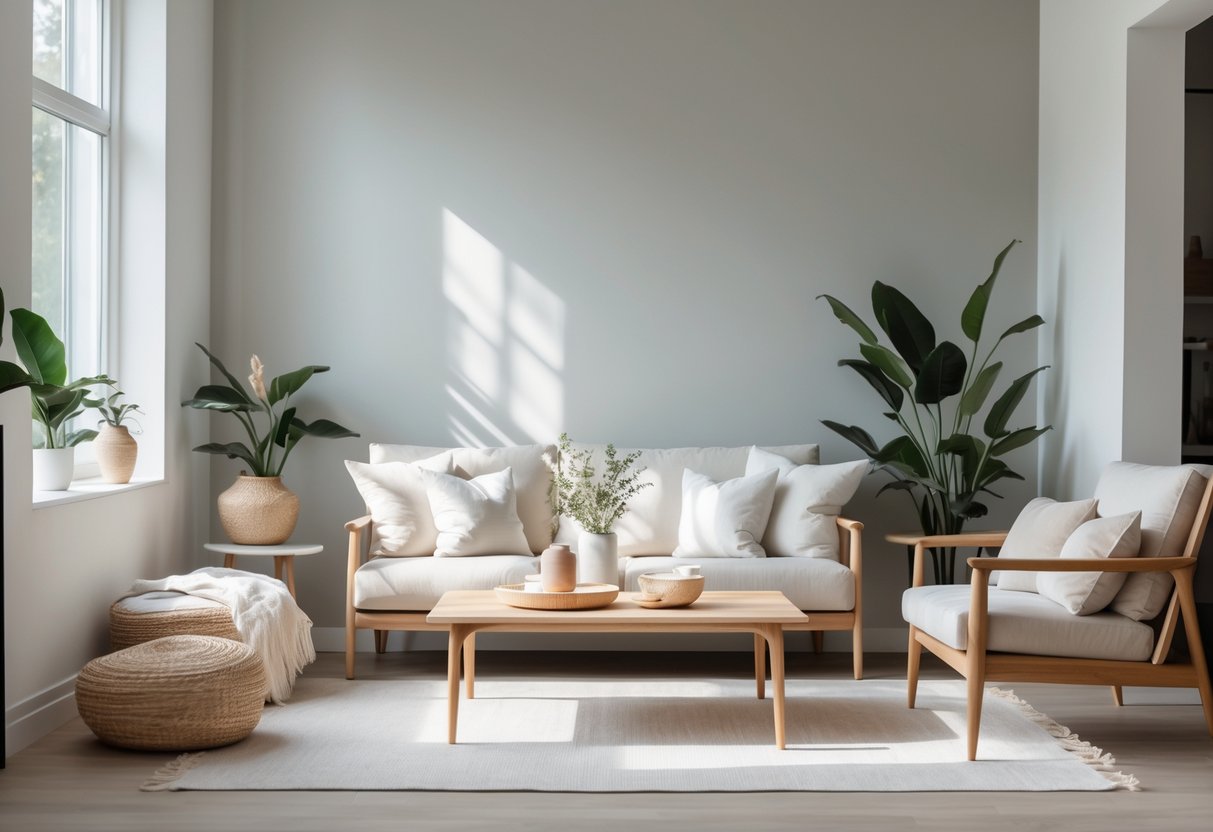
Soft whites and gentle grays are ideal for Japandi living rooms. They create a calm and open feel without drawing too much attention.
These colors act as a neutral base that highlights natural wood and minimalist furniture. Using them helps maintain a peaceful and balanced space.
3) Add a low-profile black coffee table
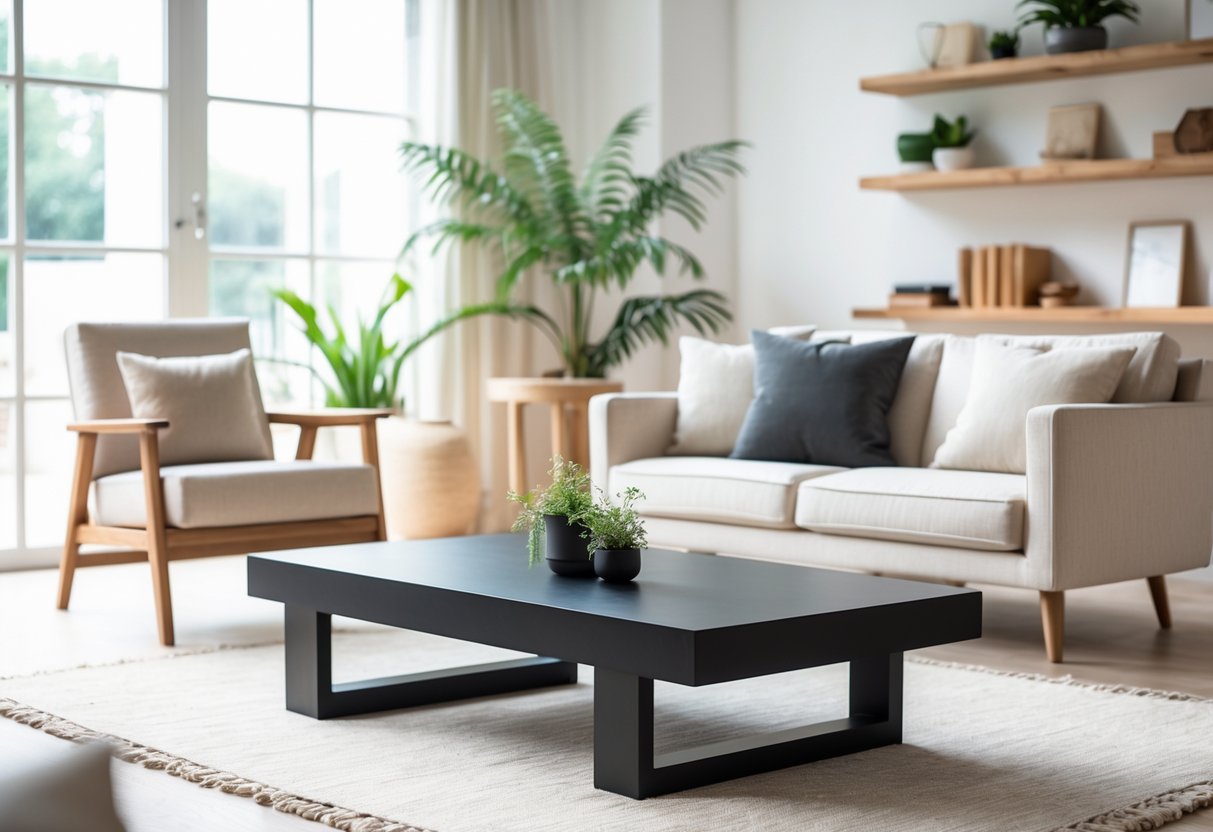
A low-profile black coffee table suits Japandi style by keeping the look simple and grounded. Its dark tone adds contrast without overwhelming the space.
The table should have clean lines and sit close to the floor. This keeps the room feeling open and balanced.
Using natural wood with a black finish can bring warmth and modernity to the living room. It connects Japanese minimalism with Scandinavian comfort.
4) Include a modular sectional sofa for flexibility
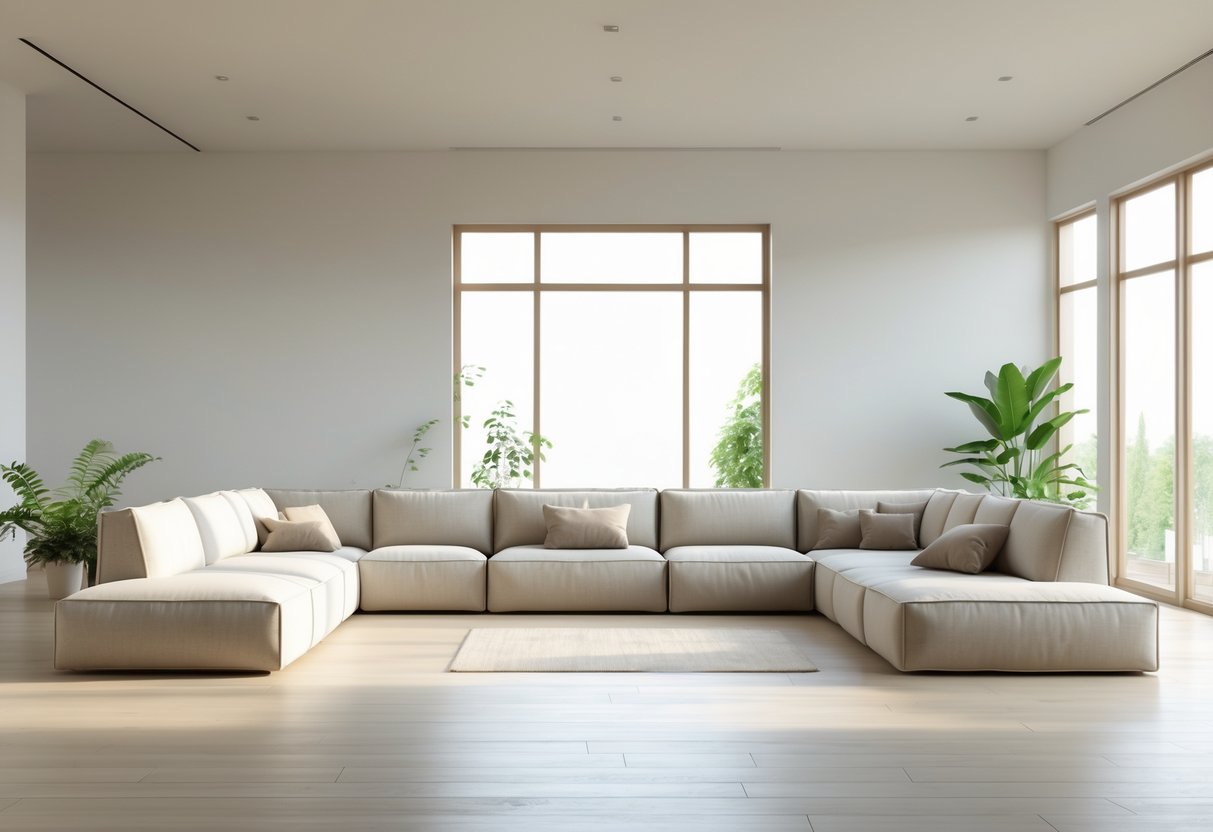
A modular sectional sofa fits well in Japandi living rooms. It allows for easy rearrangement to suit different needs or room sizes.
This type of sofa supports the style’s focus on functionality and calm design. It can create a cozy seating area without clutter.
The flexibility helps balance the clean lines and natural materials typical of Japandi interiors. It makes the space both practical and comfortable.
5) Display minimalistic Japanese wall art
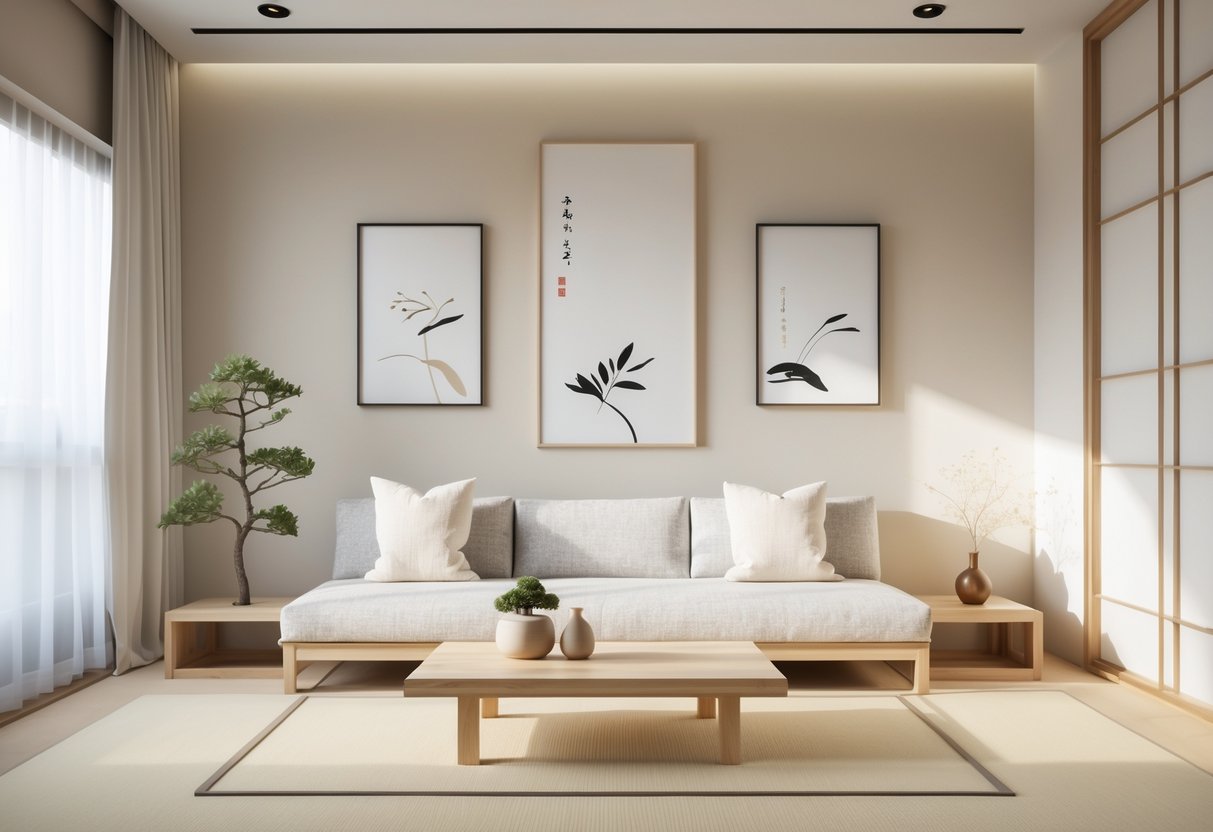
He can choose simple Japanese wall art to keep the room calm and clean. Art with natural themes or delicate brush strokes works well. It adds style without overwhelming the space. This approach fits Japandi’s focus on balance and simplicity.
6) Use textured rugs in neutral shades
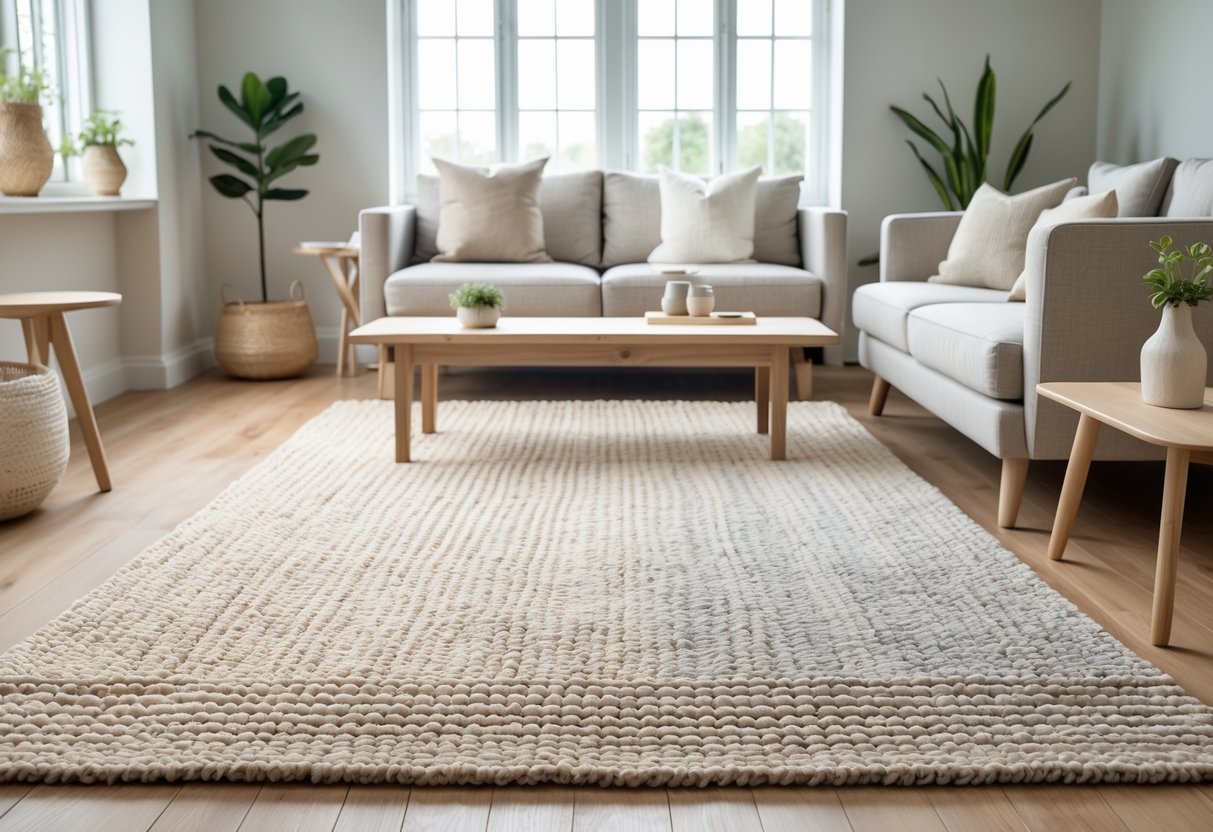
Textured rugs in neutral colors like beige, gray, or cream add warmth to a Japandi living room. They provide a soft surface underfoot while keeping the calm and simple look this style requires. These rugs help anchor the space without overwhelming the room’s natural and minimalist feel.
7) Integrate plants like bamboo or bonsai for warmth
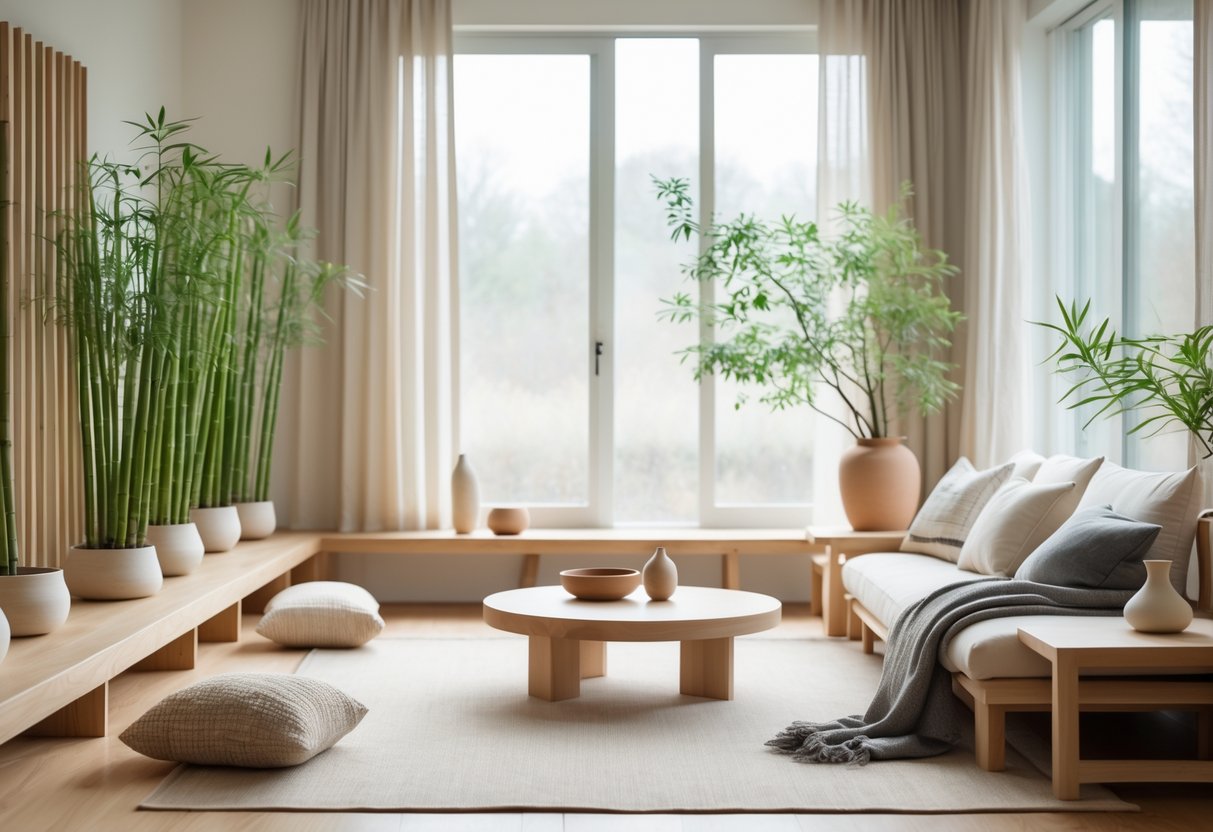
Plants like bamboo and bonsai add a natural touch that fits Japandi’s calm style. They bring life without cluttering the space.
These plants are easy to care for and help create a balanced, warm atmosphere. Simple pots in wood or clay match the natural materials common in Japandi design.
8) Install simple black metal chandeliers
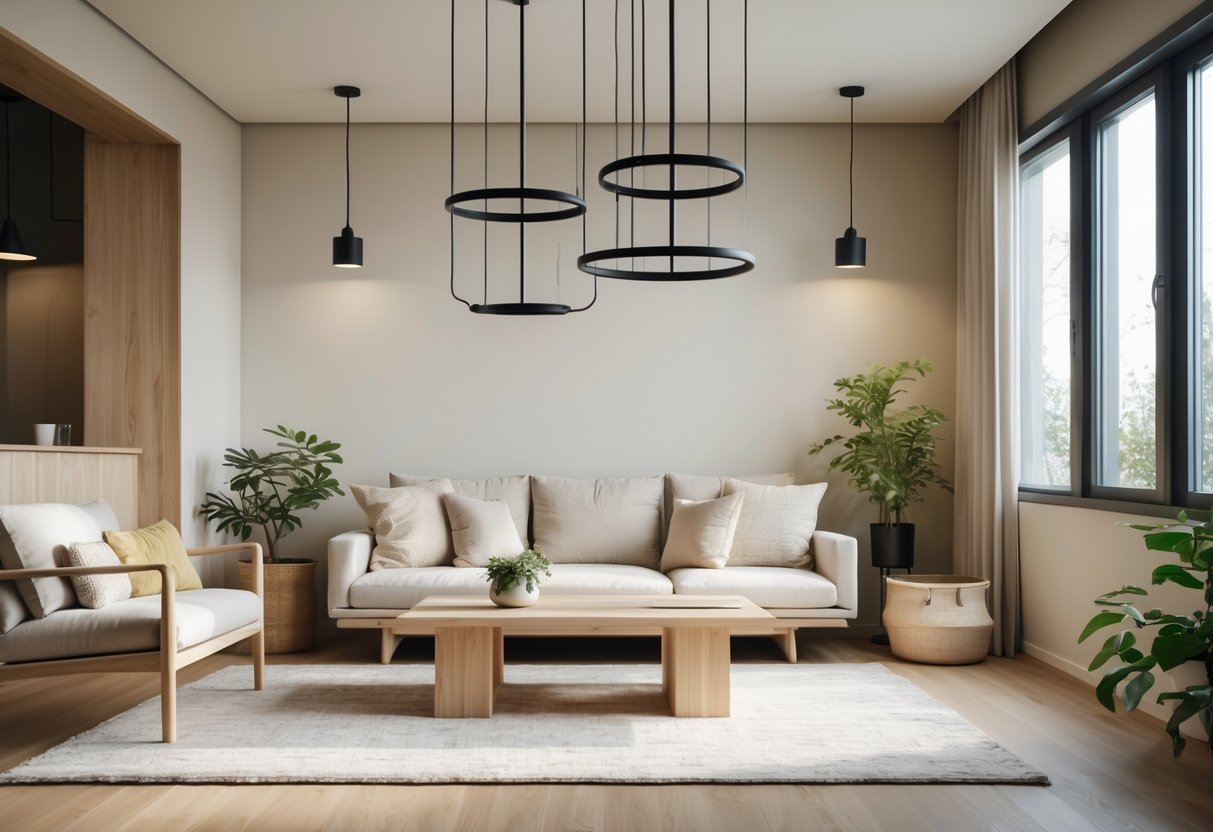
Black metal chandeliers add a clean, modern touch to a Japandi living room. Their simple lines match the style’s focus on minimalism.
These fixtures provide both good lighting and a subtle design element. They balance Japanese simplicity with Scandinavian function well.
9) Choose multifunctional furniture with storage
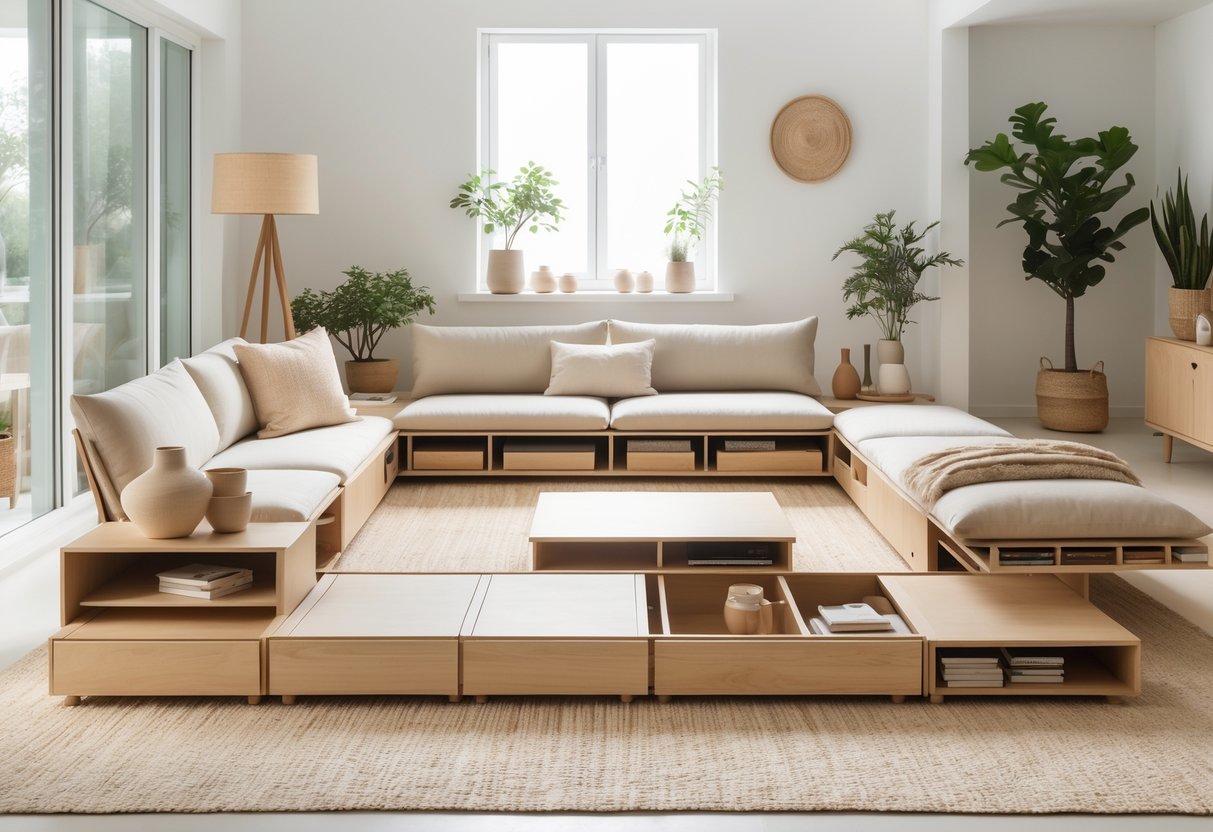
Multifunctional furniture helps keep the living room organized. Pieces like ottomans with hidden storage or benches with compartments offer extra space without clutter.
These items fit well with Japandi’s focus on simplicity and functionality. They save room and make the area feel calm and neat.
10) Combine Scandinavian coziness with Japanese minimalism
This style mixes the warmth of Scandinavian design with the clean lines of Japanese minimalism. It uses natural materials like wood and soft fabrics to create a welcoming space.
The colors are usually neutral, focusing on soft whites, beiges, and light grays. This combination keeps the room calm but also comfortable.


